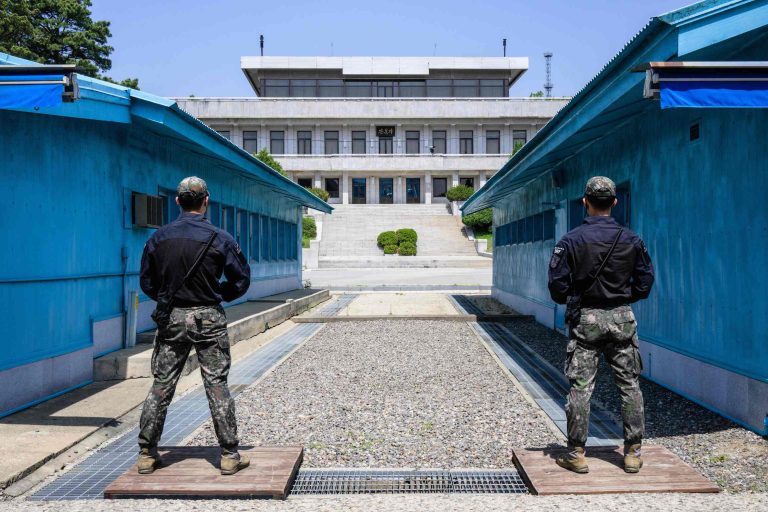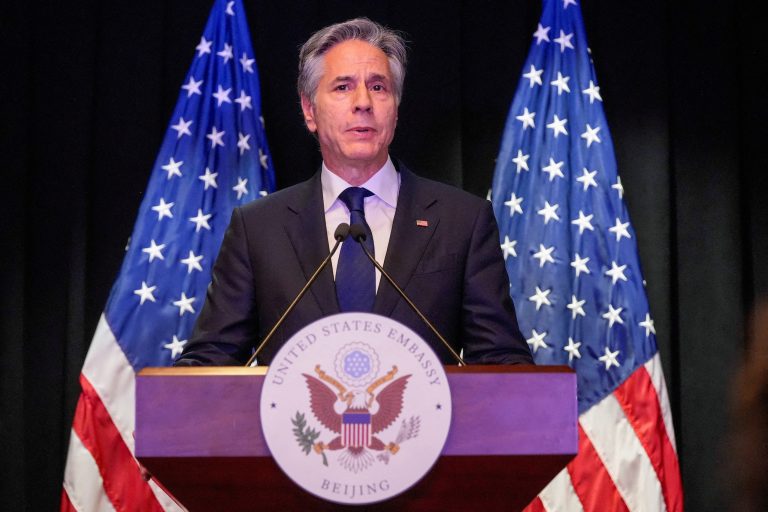A member of the U.S. armed forces deployed to the Republic of Korea (ROK) has absconded north after doing two months in detention for assaulting a South Korean national in a bar fight.
The 23-year-old soldier, surnamed King, ranks Pvt. 2nd class in the Army’s Cavalry Scouts and had been in the military since January 2021.
Last September, King was arrested in a club for assault and property damage, and was fined about US$4,000. On July 10, he was released after serving two months in a South Korean detention center, and was set to be repatriated to the U.S., where he would have faced military discipline at Fort Bliss, Texas.
However, King managed to lose his escorts at the airport near Seoul, and travelled north to the Korean demilitarized zone (DMZ), which separates South and North Korea.
At the village of Panmunjom, one of the famous border crossings, King, dressed in civilian clothing, mingled with a group of tourists before suddenly sprinting across the demarcation line into North Korea on Tuesday, July 18.
Success
You are now signed up for our newsletter
Success
Check your email to complete sign up
South Korean guards did not react in time to stop King’s dash, which took him through the narrow corridor between the blue houses sitting on the border where Northern and Southern personnel conduct negotiations and other talks.
Meanwhile, the North Korean guard presence, reportedly thinned due to COVID lockdowns, made no efforts to apprehend King before he entered the territory of the Democratic People’s Republic of Korea (DPRK).
King is now is now in North Korean custody following his defection, U.S. officials believe.
Few Americans enter North Korea, an impoverished totalitarian state of 25 million that spends much of its meager economic resources on ballistic missiles and nuclear weapons.
The DMZ was established in 1953 following the devastating Korean War, in which North Korea unsuccessfully tried to conquer the South and bring the whole country under communist rule. The war ended in a cease-fire and is not officially over.
MORE ON THE KOREAS
- South Korean President Hits Back at ‘Wolf Warrior’ Rhetoric From China’s Ambassador Xing Haiming
- North Korean Workers, Diplomat Die in Chinese Pandemic: Insiders
- South Korea Scraps Its Traditional Reckoning of Age, Making All Citizens Younger by 1 Year
Apart from Panmunjom and a few other crossings, the 2.5-mile-wide DMZ is littered with landmines and other barriers, while the millions-strong armed forces of the two Koreas are heavily entrenched on either side of the border.
The U.S. maintains a force of thousands in South Korea, a legacy from its involvement in the Korean War and assurance that it will defend the ROK in case the war should resume.
On July 19, the DPRK fired two short-range ballistic missiles into the eastern sea between Korea and Japan. The missiles, which are believed to be a newer model based on the Russian Iskander tactical ballistic missile, were launched in response to the U.S. Navy’s recent docking of an Ohio-class nuclear submarine in South Korea’s port of Busan.
The USS Kentucky, along with other ships of its class, is the largest submarine in U.S. military service. It carries 20 ballistic missiles, which can deliver nuclear strikes nearly 7,500 miles away.
According to the U.S. military in South Korea, the USS Kentucky‘s docking in Busan is meant as proof that Washington is committed to “extended deterrence” in support of South Korea against the DPRK’s belligerence.
In recent months, alarms over North Korea’s weapons of mass destruction have fueled calls in the ROK for South Korea to develop its own nuclear program, something the U.S. wants to avoid, U.S. Forces Korea stated, as reported by AP.

















